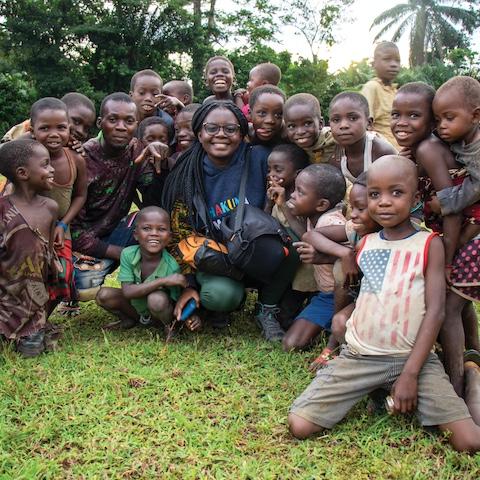Linking Conservation with Education
Ilima, a remote village in northern DRC, is in a wildlife corridor between two nature reserves. In 2013, with the support of the Nancy and Charles Wall Family Foundation Fund, AWF constructed a primary school for the village in exchange for conservation commitments from the community. Since opening in 2015, Madina Conservation School has educated 1,400 children in grades 1-6. Students learn why it is important to protect their environment, and they bring this knowledge home, contributing to a community-wide understanding of conservation. Explore how Madina students in the 2023-2024 school year see nature.

Pagination
- Previous page
- Page 3
- Next page